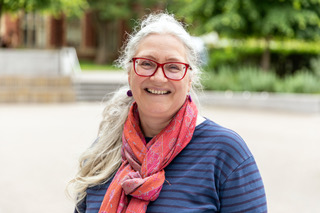Transport – a demanding transition - Inaugural Lecture by Professor Kate Pangbourne

- Date
- Wednesday 5 February 2025, 16:00 - 18:00
- External URL
- https://bit.ly/3C71Efq
We are delighted to announce that Professor Kate Pangbourne, from The Institute for Transport Studies, will be giving her Inaugural lecture at The University of Leeds.
We would like to welcome everyone – be they colleagues, postgraduate researchers, students, alumni or visitors – to this lecture celebrating the achievement and research contributions of Professor Pangbourne.
To register your attendance at this lecture, please get your FREE ticket here
In this inaugural lecture, Kate Pangbourne, the new Chair of Transport Transitions at the Institute for Transport Studies, will set out an interdisciplinary research agenda for addressing the decarbonisation, social justice and environmental challenges that are posed by the transport sector.
Along the way, hear about the career transitions that have led her to this role, forged from the usual vicissitudes of life, a highly interdisciplinary set of work experiences, and a profound concern for people and the planet which is our only home. She will weave this into an exploration of the demanding nature of the urgent need for transitioning our current transport system (and way of life) away from hypermobilities, the associated unsustainable acceleration in resource consumption and the unfolding biodiversity catastrophe. An environmental concern dating back even before the ground-breaking Rio Conference of 1992 lies at the heart of the varied work that Kate does.
Over the past 15 years, Kate has researched detailed case studies of the changing structures of transport governance in Scotland, carried out comparative work on the evolving socio-technical imaginaries of European countries positioning themselves as leaders in the pursuit of self-driving vehicles, used experiments to understand the persuasive nature (or not) of voluntary travel behaviour change messaging aimed at individuals, surveyed the public response to travel applications such as mobility as a service, critiques the implications of smart mobility and identified the challenges it poses for steering outcomes for a safer future.
As the Governance theme lead for the Energy Demand Research Centre, Kate is leading work on the agency, governance positioning and social, environmental and economic co-benefits derived from the varied activities of community action groups as well as partnering with other EDRC themes to understand the governance challenge arising out of the intermeshing of place-based energy and transport related decisions and interventions. This diverse perspective, in part derived from her origin story in arts and humanities, is sure to deliver a compelling and inspiring evening.
